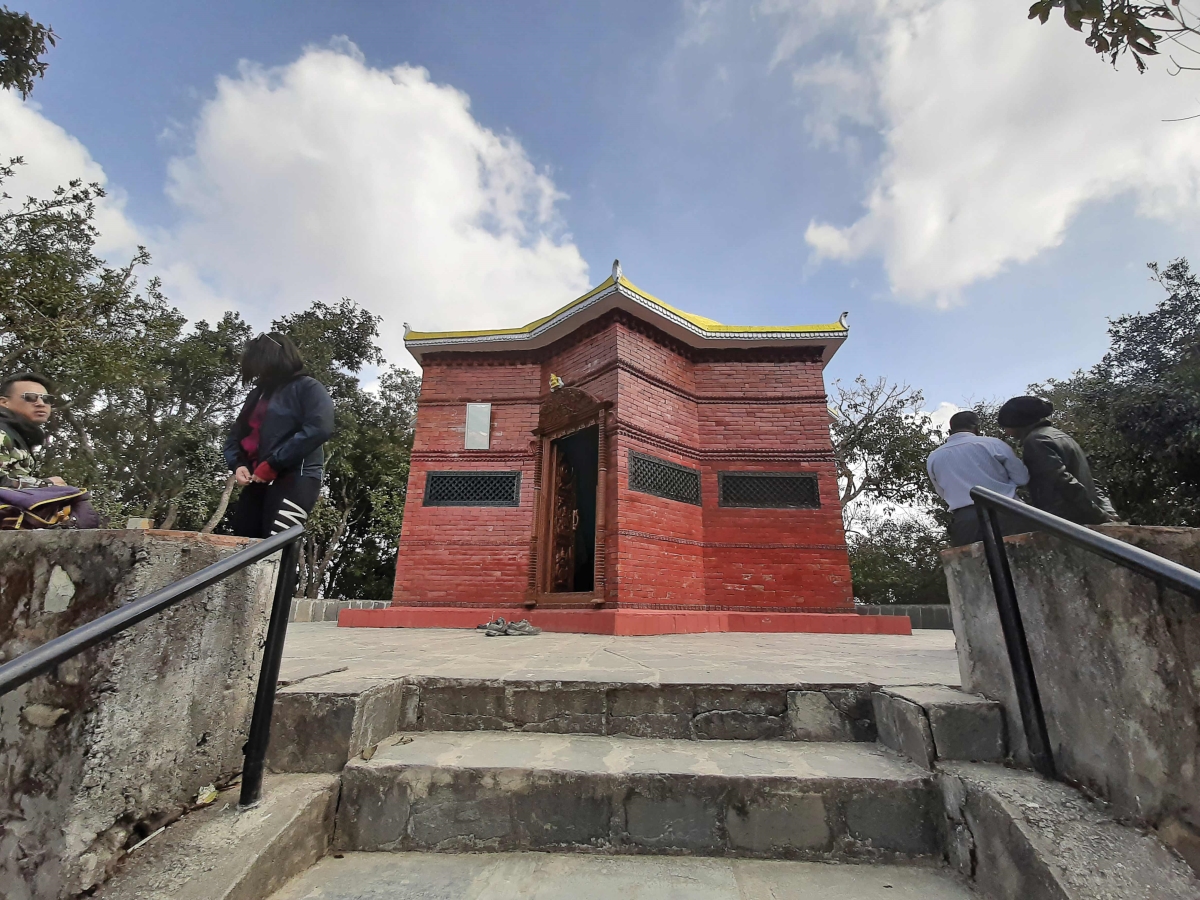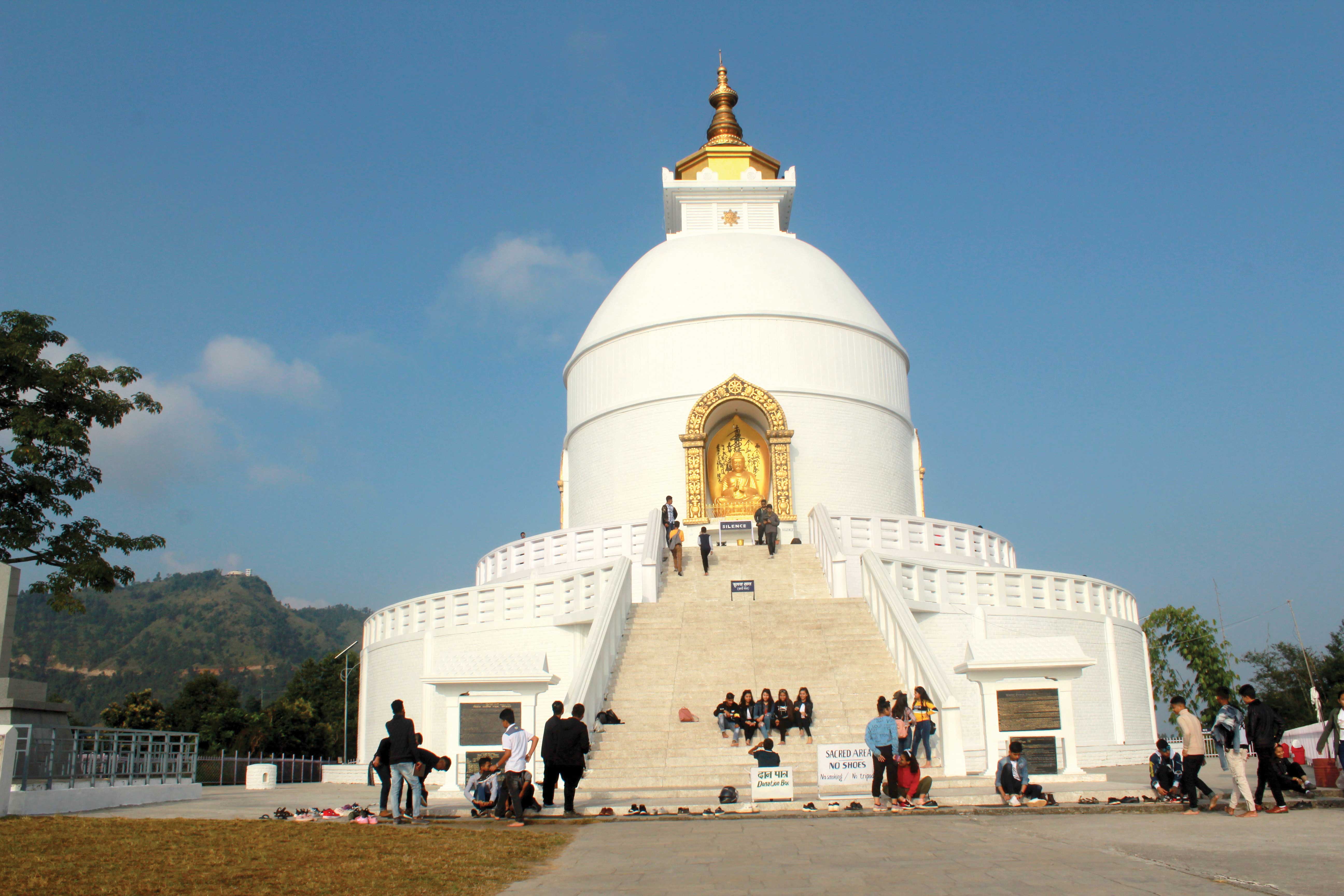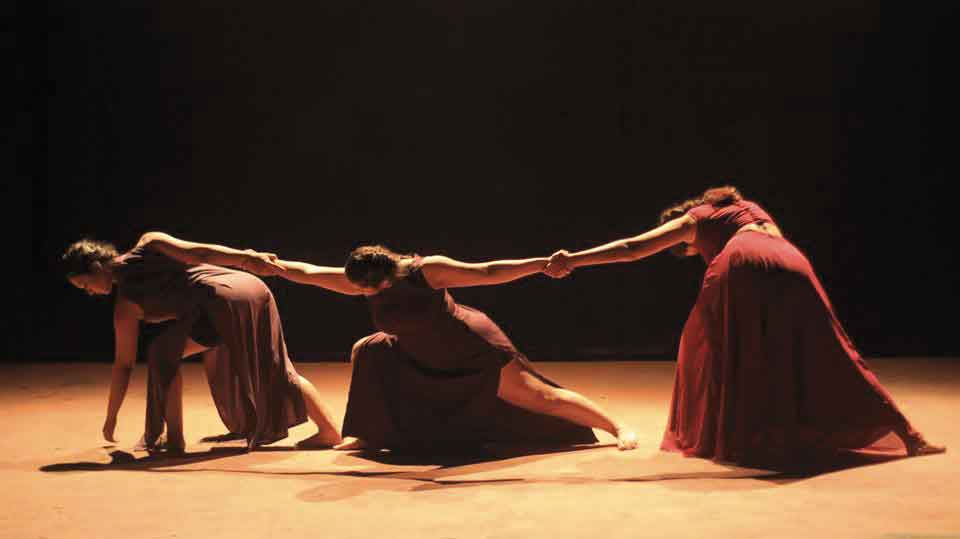
Pokhara’s one and only theatre has fast become a source of great pride for playgoers in the Lake City. As word spreads after each great performance, this playhouse is ever increasing in popularity. There was a time when theatre in Pokhara was homeless and drifted from town halls to temples, led only by a few inspired and passionate people. That was until February 2018, when Pokhara Theatre lifted its curtain for the first time and provided a permanent home for local talent and theatre patrons. Their first play was a great success with “Siruma Rani” by Saru Bhakta (winner of Madan Puraskar 2048 B.S.). The theatre is located in Gaihrapatan, not far from Pokhara’s main bazaar in Mahendrapul, and the venue displays an impressive and modern set up with a sizeable stage (24 by 28 feet) and 200 comfortable seats. Rates depend on the program but have been deliberately kept at an affordable level so the theatre is accessible for everyone (Rs 300-500), and special discounts are provided for students (Rs 200).
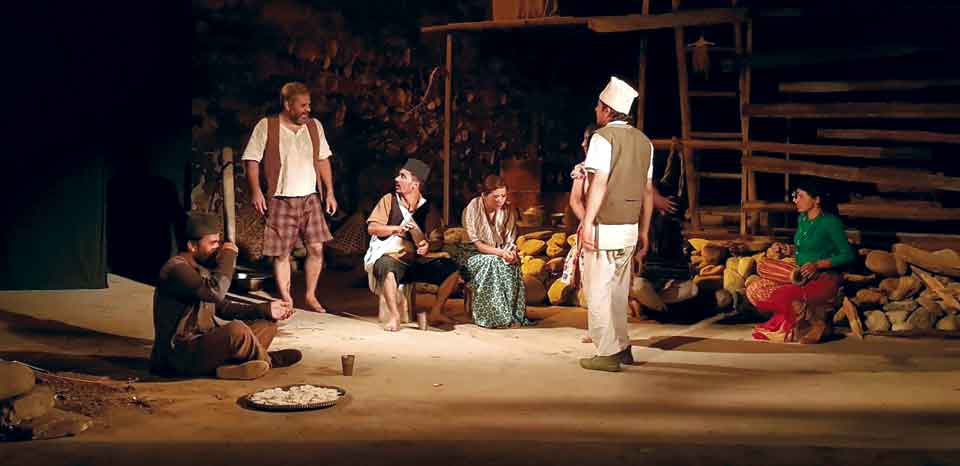
The Aim and Creation
Pokhara Theatre’s primary goal was to offer a space for performing arts outside of the Kathmandu Valley, where the vast majority of cultural events tend to be centralized. Over the last eighteen months, they have hosted over fifteen different performances including “Biteka Kura” by Rup Narayan Singh, “Aatal Bahadur ko Atanka” by Kagendra Lamichane, “Desire under the Elms/Tirka” by Che Sankar, and a number of guest productions such as “The Ugly Duckling” by Najir Husen. All performances have been hailed a great success and undeniably enhance a vital piece of the cultural lives of Pokharelis. The playhouse presents both Nepali and English theatre plays, and host national and international theatre festivals. They also host other programs such as motivational speeches and a regular music program on the first Saturday of every month.
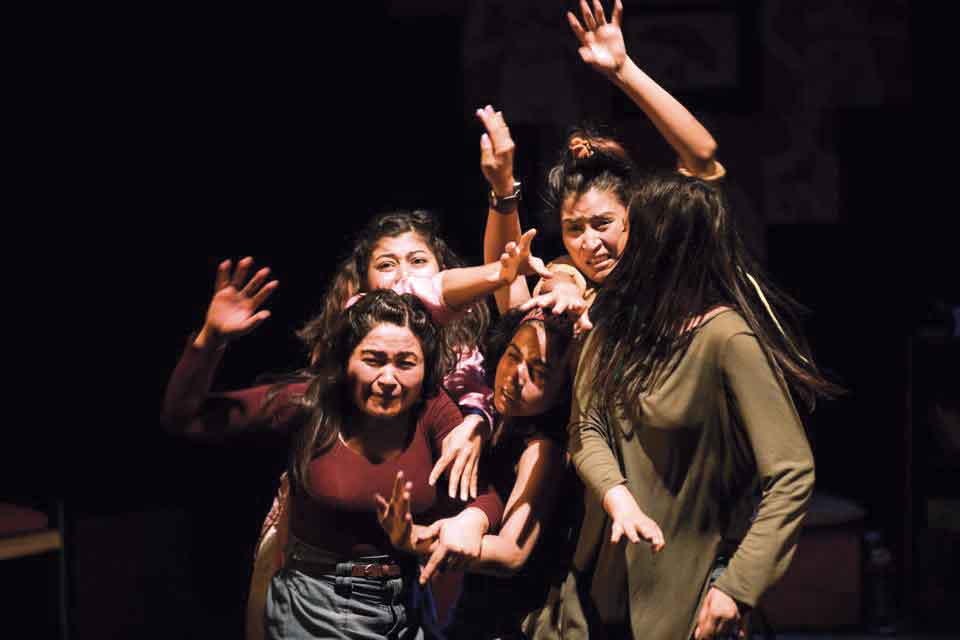
Pariwartan, the director and founder of the Pokhara Theatre, was born in Syangja and the first from his village to attain a Masters degree. He holds an MA in Nepali Literature from Tribhuvan University and has been integral in the development of theatrical arts in Pokhara. Over the years, he has brought to the stage many plays in various places around town. Then, while speaking at a press conference a few years ago, Pariwartan jokingly said that he wanted to open a theatre. This seemingly flyaway comment at the time became a reality only a few months later when he joined forces with three of his talented friends, Bir Gurung, Krishna Udashri and Bishnu Gautam, and they started the process of opening Pokhara Theatre. On Falgun 2, 2074, Mr. Rabindra Adhikari inaugurated the brand-new theatre hall.
Healing Through Arts and Action
Pariwartan’s name one he has chosen himself: inspired by his quest for equality, he decided early on to drop his last name and to be the change he wished to see. He devotes his time to promoting positive “change,” the very meaning of his new name. On a more personal note, Pariwartan says that for him “the opening of Pokhara Theatre was the end of a five year long battle with anxiety.” At its worst, his anxiety had deteriorated to the point where he could not walk and was taking prescribed medication daily to manage his symptoms. Pariwartan experienced this project as a healing process and through taking inspired action he was able to reduce his anxiety symptoms, gaining back control of his life and eventually no longer needing medication. “The project became my life,” he shares. Pariwartan’s story is an inspirational one and his devotion and commitment to the project is second to none. He works at the theatre daily, even when there are no shows on. In his own words, “This field gave me a life, why not give my life to this field?” What matters most for him is that what he does makes people happy and making people happy through the medium of theatre has given his life meaning and has become his purpose.
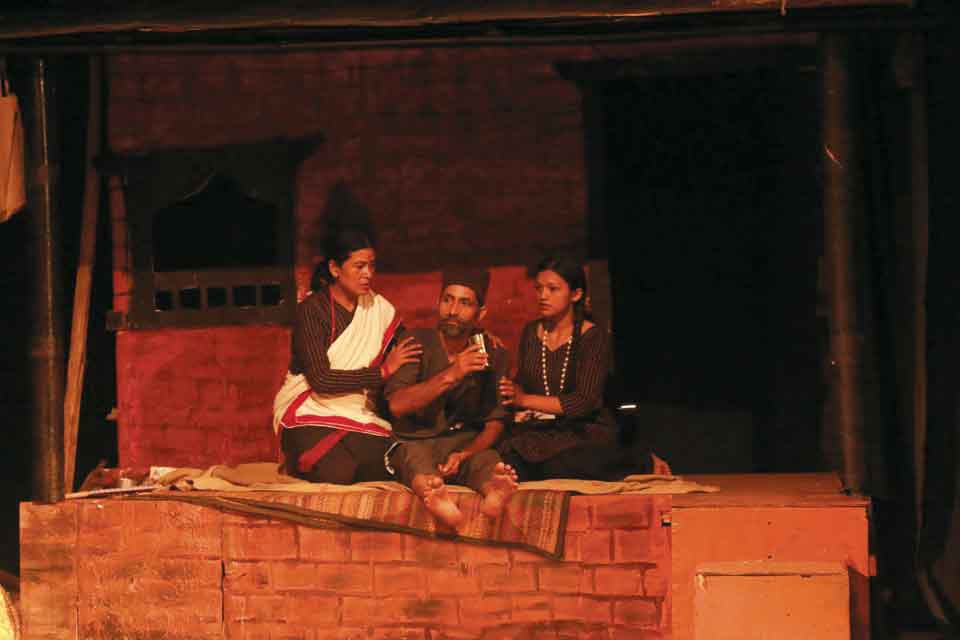
The Importance of the Performing Arts
As television and the internet became increasingly popular in recent decades, many believed that the peforming arts would gradually become unpopular and obsolete. Fortunately interest has not diminished and the arts continue to attract new talent and expertise. The performing arts are essential to the modern world and play an important role in keeping the history and culture of our society alive. Theatre promotes education, literacy and creativity. Studies have shown that students who particpate in theatre are more cooperative and self-confident, better at problem-solving, and their academic achievement benefits from improved memory and communication skills.
Live perfomances provide an intimacy or sense of particpation that film and television cannot replicate. It helps us to see a different perspective from our own and increases tolerance, as well as enhancing social perspectives and awareness. It is immediate and evolving, and the audience is blessed with a distinct and unique experience as no two performances are ever exactly the same. Arguably the most important aspect of live theatre is that it helps to promote social discourse, dialogue and potential positive social change.
Inspiring Future Generations
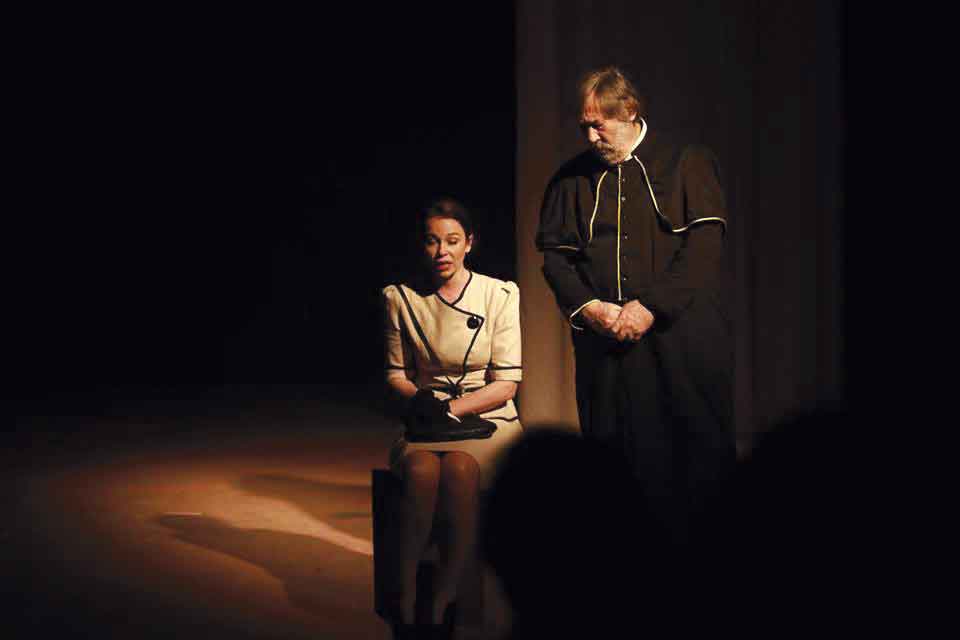
Pokhara Theatre also offers training for aspiring actors, and they are currently training their third troupe. In addition to this, they teach in seven local schools which provides more than 250 students under the age of 16 with the opportunity to hone their acting skills. The theatre aims to operate on a self-sufficient model, training its own actors, as well as encouraging an interest for the performing arts in younger generations.
Stay Connected and Don’t Miss Out!
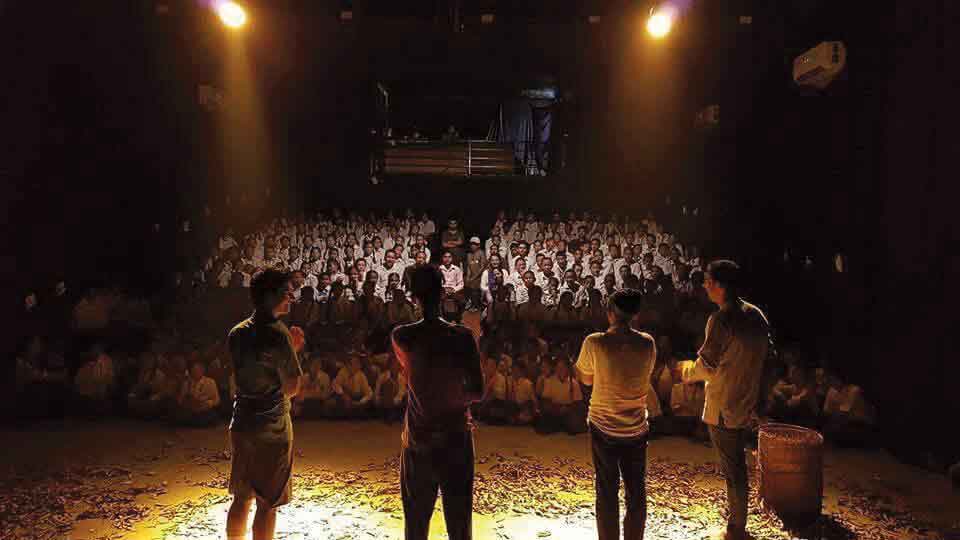
If you are a theatre fan, don’t miss the opportunity to visit Pokhara’s valued gem; check out their website at www.pokharatheatre.com.np and follow them on Facebook, Twitter and Youtube for their latest news and schedule of current and upcoming plays. Coming soon is Ek Chihan Juga from November 5, 2019, and the School Drama Festival which will be held on January 5-9, 2020. They can also be contacted at



